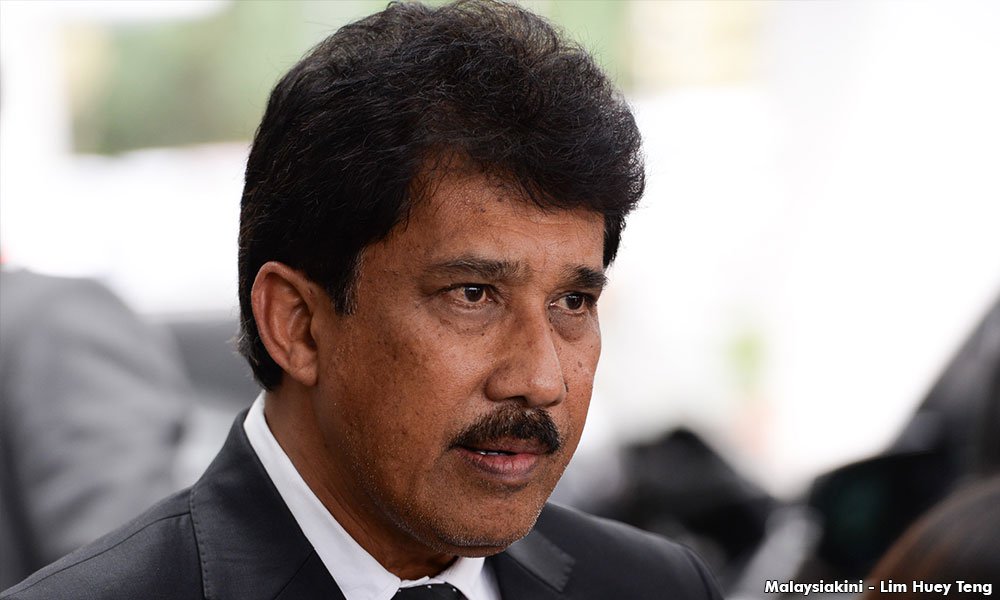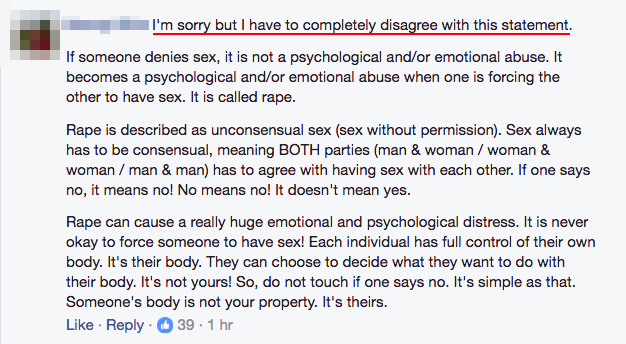Husbands Are Emotionally And Psychologically Abused When Wives Refuse Sex, Says T'ganu MP
He was speaking during a debate on the Domestic Violence Act (Amendments) 2017 Bill yesterday, 25 July.
Setiu MP Che Mohamad Zulkifly Jusoh has come under the spotlight for a statement he made recently on the types of abuse suffered by men
When debating the Domestic Violence Act (Amendments) 2017 Bill yesterday, 25 July, Che Mohamad said that men are said to be stronger physically, as they have more strength compared to women. However, he stressed that there are still cases when women abuse their husbands or try to abuse them "in ways that are sometimes extreme".
Citing an example, the Terengganu lawmaker said that when wives scold and mock at their husband, it is a form of emotional abuse.
"Hurling insults, refusing sex. These are all included as emotional and psychological abuse," he said.
The Star Online reported Che Mohamad saying that the denial of Muslim men's request to take in another wife is also a form of abuse.
Media reports on Che Mohamad's statement drew responses from fellow netizens
Quite a number of people said that the topic on "sex" should not be discussed in the Parliament as there were other more "pressing matters" such as education and economic concerns.
A few other commented and said that they disagreed with Che Mohamad's views, saying that it is not an emotional and psychological abuse if a person is denied of sex.
Che Mohamad's statement had opened up a discussion on whether wives withholding sex from their husbands is abuse as people had different views on the matter.
So, what is considered as abuse?
The American Psychological Association's Presidential Task Force on Violence and the Family defines family violence and abuse as an act to gain power unfairly or maintain that person's misuse of power, control, and authority. This includes physical, sexual, and psychological maltreatment.
Likewise, the Women's Aid Organisation (WAO) defines domestic violence as follows: "Domestic violence (DV) is an abuse of power in an intimate relationship when one partner attempts to control and dominate the other. It is not only physical but sexual, economic, and almost always psychological leaving the other partner disempowered and living in fear."
A woman's decision to not participate in a sexual intercourse itself does not equate with emotional and psychological abuse, especially when there are valid reasons for avoiding intercourse such as menstrual period.
It is important to examine the underlying motivation of an act, whether the person is being manipulative to ensure that he or she is gaining the upper-hand in the relationship.
While the act of withholding sex could be an abusive behaviour, research have shown that most women were physically assaulted by their husband for refusing to engage in sex
Studies have revealed that husbands who rape their wives believe firmly in the notion of "wifely duty" - wives are obligated to sexually satisfy one's husband. When wives appear "to not fulfil their duties", the husbands react with physical and sexual abuse, and could even result in marital rape.
"The cultural beliefs that men have an overpowering need for sex and forced sex in marriage is due to the withholding of sex by wives again minimises the effects of such a traumatic experience and places blame on the victims of marital rape," read the the paper titled 'Marital Rape: History, Research, and Practice'.
Nevertheless, this does not discount the fact that men are also victims of abuse
Women, Family and Community Development Minister Datuk Seri Rohani Abdul Karim revealed on Monday, 24 July, that more than 4,000 men were abused by their own spouse.
"Between 2014 and 2016, there were 15,617 domestic violence cases of which 74% of the victims were women and the rest men," she was quoted as saying by The Star Online.
Men, who are victims of abuse, may be even more ashamed than women to seek help.
Kuala Selangor MP Datuk Seri Dr Irmohizam Ibrahim had suggested setting up a department or counselling unit to better protect abused husbands.




